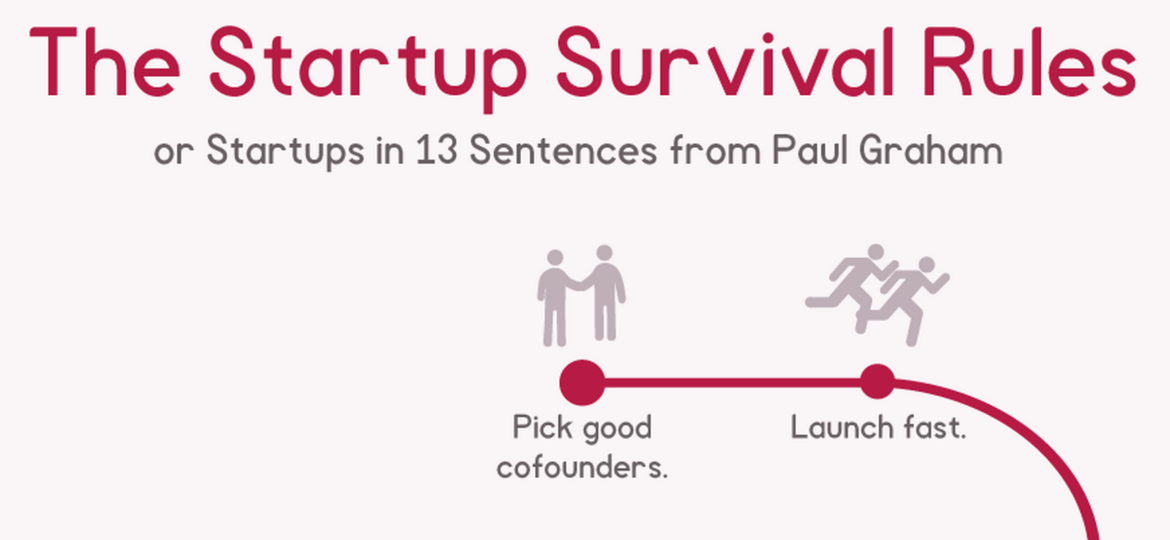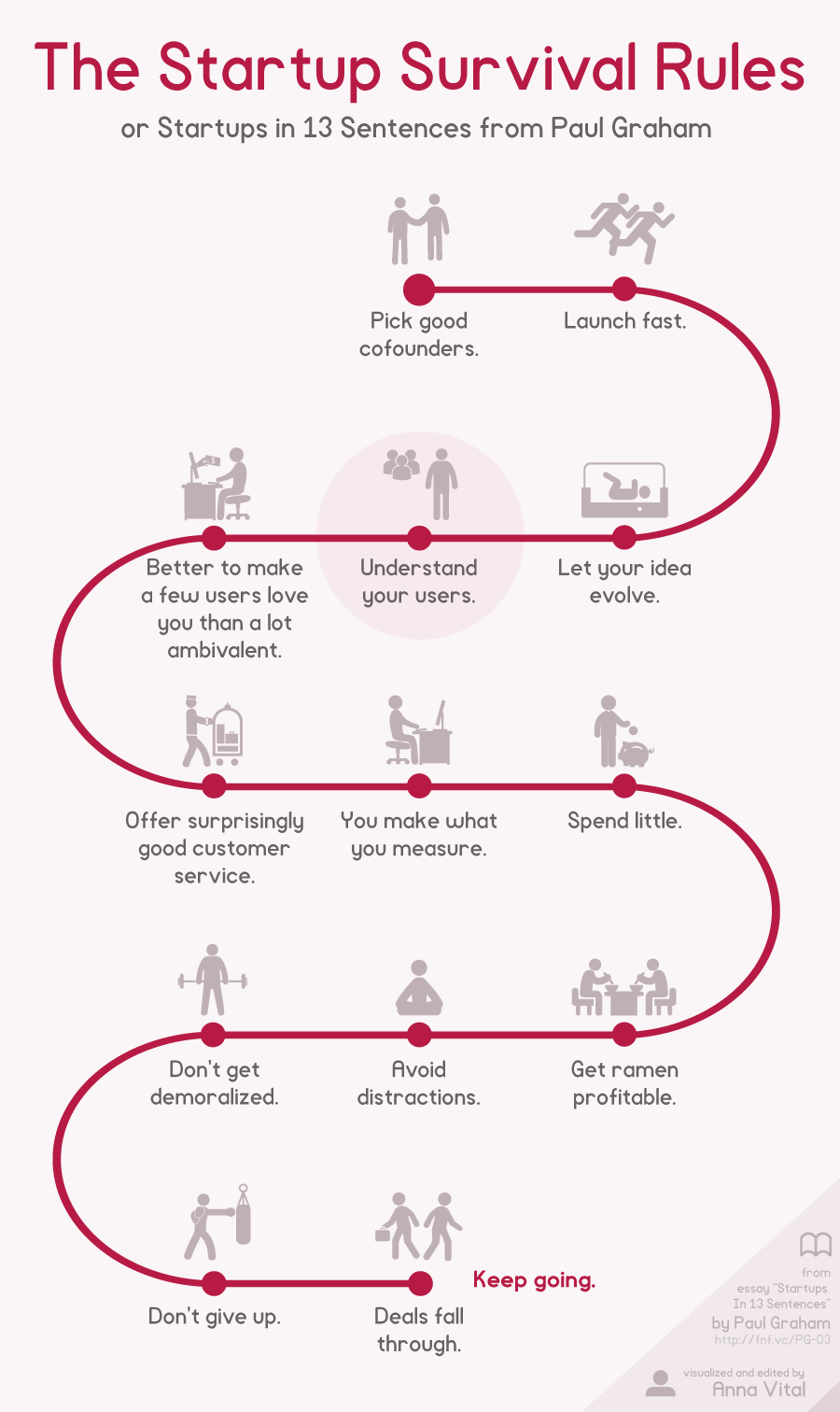
The Startup Survival Rules
Pick good co-founders. What kills most startups are the startups themselves. Everything starts with finding a bad co-founder. Bad co-founders may be very good people. They also might not do well in a startup for reasons that are not bad by themselves, like going back to school or having a side project. That’s why it is hard to gauge in the beginning who will be a good co-founder.
Launch fast. Until you launch, users can’t use you. If users can’t use you, your startup is useless to them. The longer you stay that way, the harder it will be to break the habit. Launch before you get used to not being useful.
Let your idea evolve. Many successful startups changed their ideas fundamentally. Paypal started thinking they would transfer money between Palm Pilots. Do you remember what those are any more? Exactly. Had they not stayed open to the possibility of needing to change everything, we might have never heard of them.
Better to make a few users happy, than many ambivalent. If you ask people whether they like your startup, they will most likely say yes. People are nice. But that means nothing to you. Let them vote with their time and money. If they actually use you it counts. If they say it’s a great idea but don’t use you, you have to worry.
Offer surprisingly good customer service. At the beginning you can afford to talk with your customers on the phone or in person. Why not? They are the first people who found your product useful. They are like investors, only with their time. Learn from them, and give them the best you have.
You make what you measure. Unless you grow, you are not a startup. Growth, though, is often deceptive if you measure the wrong metrics. Figure out what exactly it means for you to grow.
Spend little. No matter how much funding you have, you are always closer to death than you think. Unless you are profitable. So spend little. Your investors’ money is the money you don’t have.
Get ramen profitable. Even if you have little money coming in, it means someone values you product enough to pay for it. That is the ultimate sign that your company might survive. Now it’s just a matter getting more customers to do the same.
Avoid distractions. The only reason a startup exists is to serve its users. Funding is a distraction. School is a distraction. Magazine photoshoots are a distraction. These may be useful distractions of course, but if they take the time and attention away from building the product, they become useful but lethal distractions.
Don’t get demoralized. In a startup nothing will happen until you make it happen. People won’t respond. Customers will try not to pay. Partners won’t come through. Investors will flake. Employees will leave. What can you do? You can’t leave. Just keep trudging through until you find what users need.
Don’t give up. The surest way to make people believe is keep growing, and if you can’t grow, keep going. The moment you give up, it is really over.
Deal fall through. It may be hard to believe, but even after investors say yes, they might still never send you the check. People, even the most sophisticated ones, have buyers remorse, second thoughts, insecurities – in short they are no different than you, so expect that from them. And keep going despite it.
Inspired by Paul Graham’s essay “Startups in 13 Sentences”.
